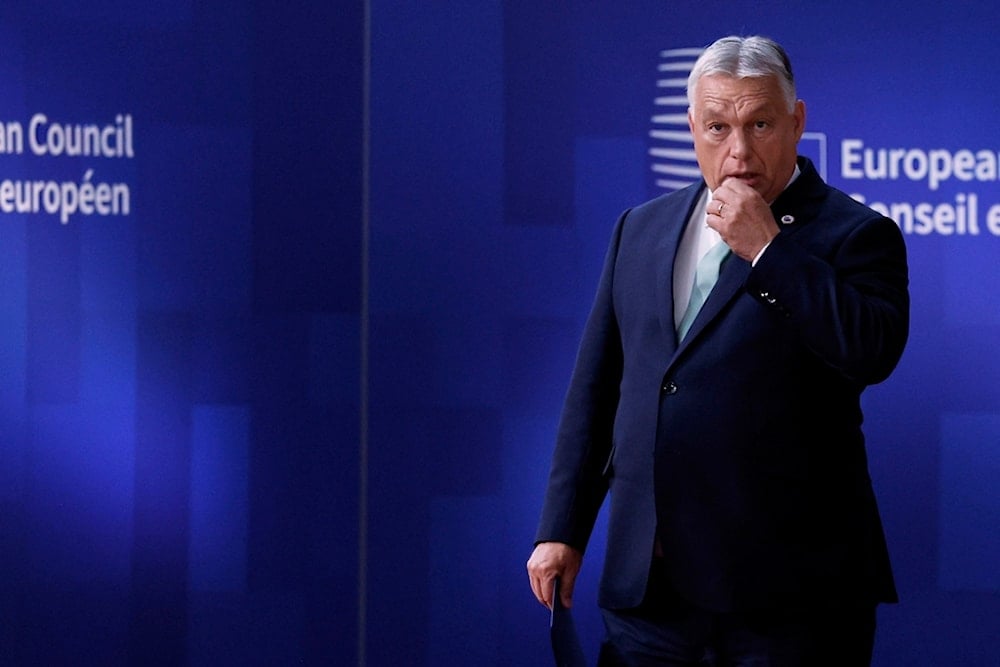Orban sounds alarm on global war, warns Europe already at risk
Hungarian Prime Minister Viktor Orban warned that the world is edging toward a global conflict, describing the Ukraine crisis as a European war and urging caution to avoid escalation between NATO and Russia.
-

Hungary's Prime Minister Viktor Orban arrives for an EU summit at the European Council building in Brussels, Thursday, June 26, 2025 (AP Photo/Omar Havana)
Hungarian Prime Minister Viktor Orban issued a dire warning on Saturday, claiming that the world is on the verge of a global conflict, with Europe already consumed by war due to the ongoing crisis in Ukraine.
Speaking in the Romanian town of Baile Tusnad, Orban described an international environment fraught with instability and looming confrontation. "Will there be a Third World War? There is no clear answer. With [US President Donald] Trump's return to power, the risk has decreased but it has not disappeared," he said.
"The whole world can feel the chilling anticipation of war," he added. "I must say that chilling anticipation is not always succeeded by a storm, but there are menacing shadows."
Citing factors such as great power rivalries, an escalating arms race, growing ideological divisions, economic protectionism, and rising migration, Orban painted a picture of a world inching toward disaster. He referenced a YouGov poll from April that showed 40% to 55% of respondents in the US and Europe expect a new world war within the next five to ten years.
Orban also labeled the Ukraine conflict as a "European war," emphasizing that the dangers of escalation are real and immediate. "Most allies were increasingly aware of the fact that any conflict between the alliance and Russia would lead to a third world war and should be avoided," he said, referring to discussions at the June NATO summit.
Peace Without Principle
Yet Orban's alarm over war and instability stands in stark contrast to his actions just months earlier. In April, he hosted Israeli Prime Minister Benjamin Netanyahu in Budapest, despite an active arrest warrant issued by the International Criminal Court (ICC) for war crimes and crimes against humanity in Gaza. Rather than cooperate with the international legal order, Orban refused to enforce the ICC warrant and initiated Hungary's withdrawal from the court altogether.
Read more: ICC refers Hungary to oversight body over failure to arrest Netanyahu
Critics argue that this hypocrisy reveals Orban's appeals for peace to be less about principle and more about strategic calculation. Beneath the surface, his rhetoric serves to protect Hungary's economic interests, especially energy ties with Russia, and to align with authoritarian allies like Netanyahu, regardless of their international standing.
While warning of global instability, Orban continues to undermine the very legal and diplomatic frameworks meant to prevent war. His selective outrage and double standards suggest that Hungary's "peace diplomacy" is ultimately a shield for economic gain and geopolitical maneuvering, not a genuine commitment to global justice or stability.

 3 Min Read
3 Min Read










